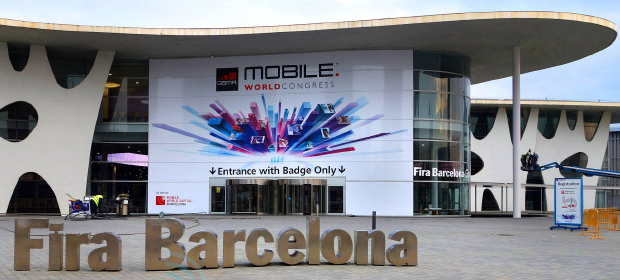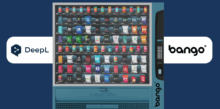Mobile World Congress 2013: The massive challenge and opportunity in front of the mobile operators
by Sukey Miller

I come to Barcelona for Mobile World Congress every year. I often don’t see much of the expo or conference itself, as I stuff my diary with as many meetings as seems reasonable from my cosy office desk. Six meetings in a day is only reasonable on paper. Everywhere else it’s a battery-burning, laptop-dragging, patience-testing nightmare.
But this year I’ve scheduled fewer meetings, and given myself more time. So I’ve been wandering around the exhibition, soaking up the bigger picture. I’ve seen a few things I thought I’d share.
Firstly, I’ve been struck by the massive challenge and opportunity in front of the mobile operators. We’re living through a mobile revolution, with smartphone activations at an all-time peak and expected to rise as developing markets catch the bug. We’re using mobile data, the lifeblood of today’s mobile services, more than ever before. Connected homes, mobile commerce, mobile banking and other mobile innovations will change how we live and work. Yet the operators face falling revenues, amid a hard truth: commerce is taking place on their infrastructure, but they risk being totally excluded from it. On top of that, the operators face taxation and regulation that would make our eyes water, while being expected to invest for the long term, in next generation infrastructure.
As Telefónica CEO Cesar Alierta told the conference, “the central role of operators is challenged by new players from the software and hardware world. We are challenged to upgrade our networks to accommodate huge growth in traffic. But our revenues are not growing at the same speed”.
So there’s a battle which rarely speaks its name. It’s a battle between the network operators and the technology giants who would eat their lunch.
And yet, the network operators have one key advantage: They hold a simple, trusted billing relationship with the customer. This key advantage is useful now, and will become absolutely vital as the next billion smartphone activations bring areas of the developing world to the party. Such users may not have a bank account or a credit card, but they can charge the cost of a purchase to their phone bill. If the mobile operators can leverage the great power of operator billing, expect them to mount a serious fight-back in mobile commerce. This is a battle ground in which Bango is closely involved. Bango provides mobile billing to many of the world’s largest app stores, and has built direct billing connections into more than 90 of the world’s largest network operators. Bango’s recent partnership with Telefónica Digital marks a major milestone in the drive to leverage the power of the operator in providing “frictionless” payment for smartphone users.
Another central theme of this year’s MWC has been the drive to provide smartphones for the developing world. I’ve written before about how the developing world, particular parts of Africa, are now an engine of mobile innovation, and this is before smartphones reach any sort of mass penetration. We’ve had several low-cost phone announcements over the past few days, including Nokia’s $20 feature phone, with a battery life of one month. More exciting to me was Mozilla’s Firefox OS and associated smartphones, launched here at MWC with a series of powerful allies, including 18 operators at launch. This browser-based operating system and low-cost handset is likely to supercharge the push into developing markets, and some commentators even predict that Mozilla could provide the much fabled “third platform”, behind Apple’s iOS and Google’s Android OS. For my money, the most exciting element of this launch is that it embraces operator billing from launch. This is the first app store to do so, and we expect it won’t be the last.
On a more personal note, I’ve been brought back to the sheer wonder of these smartphones in our pockets. As I’ve wandered from booth to booth, with the latest phone vendor touting the newest features, I’ve felt that these were just the fine details to the major story. With or without ‘Live Tiles’, NFC or a 50 megapixel camera, today’s smartphones are the marvels of our modern age. They’re the most powerful sharing tool in the history of humanity, connecting us to the sum of human knowledge, maintaining a constant connection to satellites in space, at a price point which will soon bring “the next billion” into the fold.
Exciting times indeed, and a nicely sobering thought as I tend to the blisters on my feet, and worry about the roaming charges on my next phone bill.
Below you can access a couple of interesting articles which were published in the MWC official newspaper ‘Mobile World Daily’. Looking at how web technologies including HTML5 are set to disrupt the app economy, giving developers more freedom to innovate and operators the opportunity to fight back against the app stores. Both articles are copyright GSM Media LLC 2007-2013.
HTML5 to provide “third way” for apps
Web technologies to flip app economy
Subscribe to our newsletter
Get the latest subscription bundling news and insights delivered straight to your inbox.




